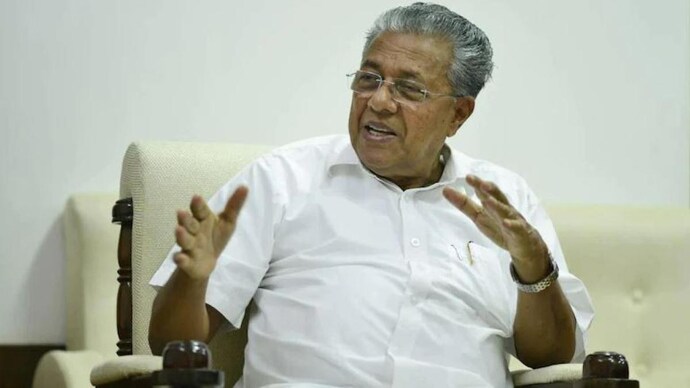Table of Contents
Introduction-
In recent years, there has been growing concern over attempts to shape India’s identity as a religious nation. Kerala Chief Minister, Pinarayi Vijayan, has raised alarm bells about these efforts, warning against the consequences of such a transformation. In this article, we will explore the remarks made by the Kerala CM and analyze the implications of turning India into a religious nation.
The Kerala CM’s Remarks-
Pinarayi Vijayan, the Chief Minister of Kerala, recently addressed the issue of attempts to turn India into a religious nation. He expressed concern over the rise of religious extremism and intolerance in the country, warning that it poses a threat to India’s secular fabric and democratic principles. Vijayan highlighted the importance of respecting religious diversity and promoting harmony among different communities.
The Chief Minister criticized the ruling government’s policies, accusing them of pursuing a divisive agenda that undermines the secular foundation of the nation. He emphasized the need for inclusive governance that prioritizes the welfare of all citizens regardless of their religious beliefs. Vijayan’s remarks underscored the challenges facing India as it grapples with religious polarization and communal tensions.
Implications of Religious Nationalism-
The push towards religious nationalism has significant implications for India’s social cohesion and political stability. By privileging one religion over others, it marginalizes minority communities and fosters a climate of discrimination and prejudice. This can lead to social unrest and undermine the country’s reputation as a pluralistic and tolerant society.
Furthermore, religious nationalism undermines the principles of secularism enshrined in India’s Constitution. It erodes the secular fabric of the nation and undermines the rights of religious minorities. This can have far-reaching consequences for India’s democratic institutions and governance structures, as it threatens to subvert the principle of equal citizenship for all.
Challenges to Secularism-
India has a long history of religious diversity and pluralism, with Hindus, Muslims, Christians, Sikhs, and other religious communities coexisting peacefully for centuries. However, in recent years, there has been a rise in religious polarization and communal violence fueled by extremist ideologies. This poses a serious challenge to India’s secular identity and democratic values.
The rise of religious nationalism has emboldened extremist groups to promote their agenda of hate and intolerance. This has resulted in numerous instances of religious violence and discrimination against minority communities. The erosion of secularism not only threatens the rights and freedoms of religious minorities but also undermines the foundational principles of India’s democracy.
Defending Secularism and Pluralism-
In the face of growing religious nationalism, it is imperative for citizens and leaders to defend secularism and pluralism as fundamental values of the Indian nation. This requires a concerted effort to promote interfaith dialogue, tolerance, and mutual respect among different religious communities. It also entails holding accountable those who seek to sow division and discord for their own political gain.
Leaders like Pinarayi Vijayan play a crucial role in advocating for secularism and pluralism in India. By speaking out against religious extremism and defending the rights of religious minorities, they help uphold the principles of democracy and equality enshrined in the Constitution. It is incumbent upon all Indians to stand united against the forces of religious nationalism and work towards a society where every individual is treated with dignity and respect, regardless of their religious affiliation.
Conclusion-
The remarks made by Kerala Chief Minister Pinarayi Vijayan highlight the growing concerns over attempts to turn India into a religious nation. The rise of religious nationalism poses serious challenges to India’s secular identity and democratic values. It is imperative for citizens and leaders to defend secularism and pluralism as fundamental principles of the Indian nation. Only by promoting interfaith dialogue, tolerance, and mutual respect can India uphold its legacy of religious diversity and pluralism.
